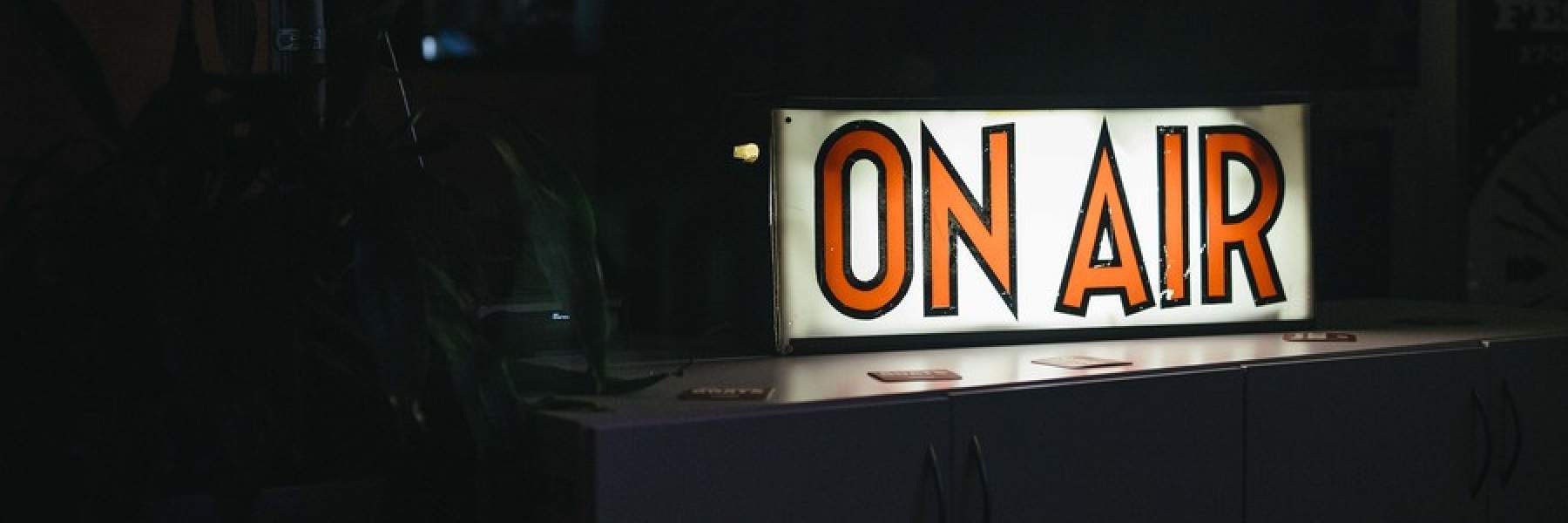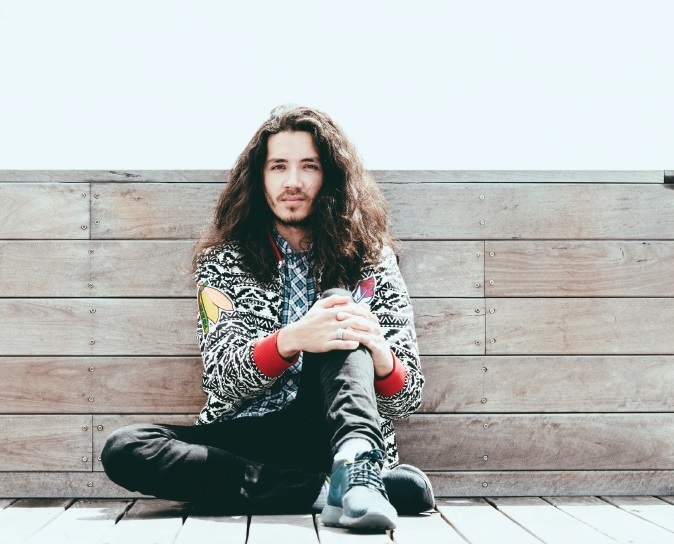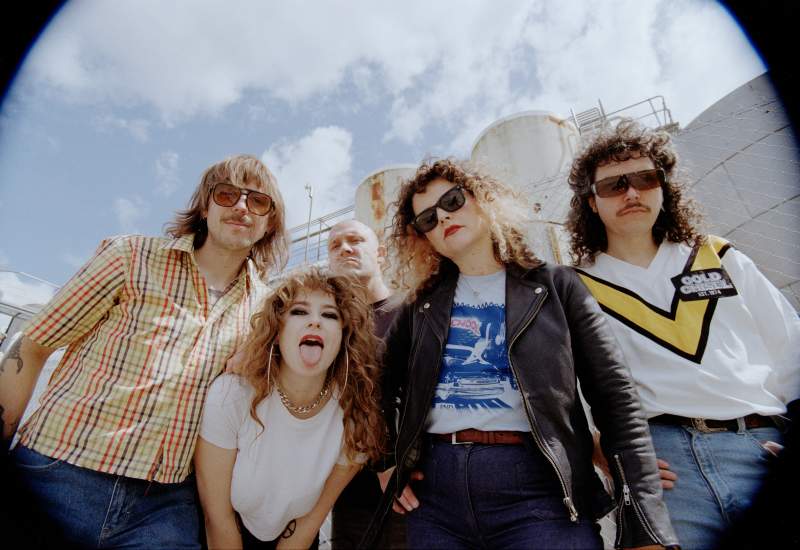I got my first radio cassette deck when I was about 7. I used to listen before going to sleep and keep it handy next to the bed to record mixed tapes. One tape I made had Sugar Hill Gang’s “Rappers Delight”, which I must’ve worn out. It was exciting and fresh sounding, I think I can still recite every word. I learnt later that I’m often attracted to any music with roots in jazz, soul, funk and disco. The rhythmic culture of these styles fascinates me. I would often know the rhythmic and melodic nuances of a song before I knew the lyrics.
My dad’s side of the family were all very musical, many of them professional classical musicians or aficionados. My grandfather was a huge opera buff and mum and dad did their best to expose me to opera and classical music as a child. I guess I was like most kids though, I really liked Michael Jackson, Bob Marley, The Fugees, and inevitably some ‘90s pop or rock bands I can’t remember anymore.
I started developing an ear for jazz thanks to playing the trumpet and having a great high school music program. This led to studying jazz for three years at The Western Australian Academy of Performing Arts. There you take music history and are surrounded by peers who provide you with much of your music education. We listened to a lot of jazz, from Louis Armstrong and Bix Beiderbecke, right through swing, bebop and spiritual to post-bop, fusion and modern jazz. A lot of other styles of music crept in naturally too. Miles Davis’ Kind Of Blue was given to me by my high school trumpet teacher. I was transported with that record and it stayed in my hi-fi system for maybe five months. I was determined to learn every note on trumpet. I also listened to it in its entirety almost every night to get to sleep for that same period of time. Modal jazz was easy on the ear and made it the perfect entry point to the genre.
Only when I started to DJ did I become obsessive about collecting music other than jazz. My great aunt (a brilliant cellist who was with the MSO for many years) gave me a CD called Directions In Music: Live at Massey Hall, it was a live recording celebrating the music of Miles Davis and John Coltrane featuring Herbie Hancock, Roy Hargrove and Michael Brecker. The first few listens I tried to understand what was going on but it was not clear to me at the time. It was only years later that I could appreciate what was going on between those musicians on that record.
John Scofield once summed it up in a lecture I attended. He roughly said: “When I started playing music, much of it was cloaked in a cloud or a fog. The more I practiced and accumulated knowledge, the more it started to clear up. Now it’s as clear as day.” This same phenomenon happens with every genre of music you start investigating, you start to hear the intricacies of the music and then develop an ear for what you like and don’t like about it.
My first experience with turntables and a mixer was at DJ Prequel’s house when I was about 15. While attempting to scratch I managed to knock the tone arm and cut a deep scratch through most of the record. The LP was a write-off and I didn’t touch turntables again until I was 22 years old, when I bought a set and started DJing with Serato computer software. I didn’t have a record collection so the idea was to start collecting records and that by the time my collection got big enough I would know how to mix vinyl.
I discovered PBS in 2009, around the time I started DJing. I didn’t listen to much radio in high school and moved to Perth to study music right afterwards, so my relationship with Melbourne community radio got started late. The first shows I listened to were Rampage, Boss Action and The Breakdown. I got involved thanks to fellow presenter Courtney Clarke, who was working in the office at the time and suggested I put in a show application. After doing a couple of fill-ins I put in the application for Tomorrowland and was lucky enough to get a permanent graveyard spot, fortnightly from 2-6am on Friday mornings.
Doing the graveyard shift (Insomnia) is like having musical carte blanche to experiment with songs and segments that you may not be able to play on daytime radio. I absolutely loved it. There is something magical about broadcasting in those early hours of the morning, it feels like the whole world is sleeping and you’re broadcasting at the end of the earth! It makes the connection to the listeners that are out there even more special. Much of the most interesting radio you’ll hear is late at night away from the pressures of daytime radio.
Moving into Tuesday mornings gave me the opportunity to refine my presentation style and programming. The aspect of radio I’ve taken most seriously is programming the music. I always programmed the show as a whole two-hour set. This would almost always change on the day based on how I was feeling in the studio. I thought it was important to hear all or most of the show to get the full picture. I assumed that I would be playing material that some (or many) PBS listeners might not connect with, which was nerve-wracking. Tomorrowland’s ethos is to show evolution and connections between different genres and eras of music. I program it in a way that leads the listener up to the more challenging material with something more relatable. By contextualising a sound before launching into it, you can hopefully win the listener over to see that it’s all music, regardless of the label. It might seem ridiculous now but it was scary playing house music during the day on PBS at the start.
The move to Friday afternoon was my dream spot on the station, I loved Tuesday mornings but tend to work Thursday to Sunday, which made getting out of town difficult. Friday is a brilliant day of diverse programming on PBS and makes it a lot easier to have international and touring guests in on the show for mixes and interviews. Friday afternoon also has a different energy to Tuesday morning – more upbeat leading into the weekend! Tomorrowland is evolving for the summer, with PBS presenting Roof To Reel: a recorded live mix series. We’ll be treated to guest mixes over the warmer months from some of my favourite Melbourne DJs and producers on a weekly basis!
Edd Fisher presents Tomorrowland every Friday from 1-3pm on PBS.


